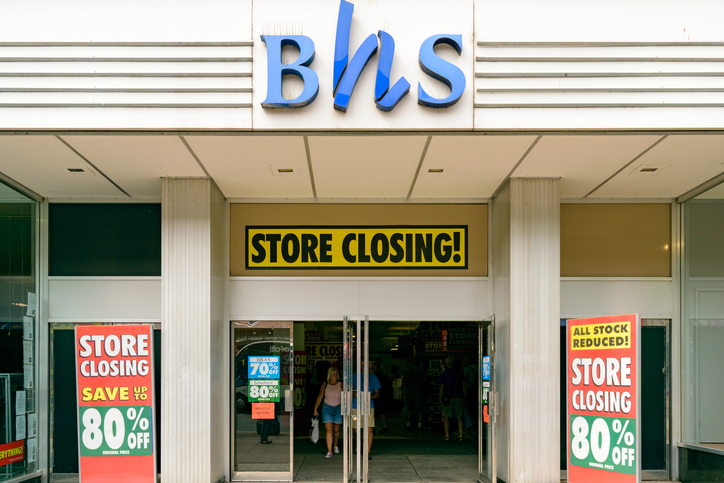Mailing List
To help us keep you updated with our handy guides and other useful news, please consider signing up to our mailing list.
It's quick and easy, and we promise not to send you spam or share your details with third parties.
Mailing List
To help us keep you updated with our handy guides and other useful news, please consider signing up to our mailing list.
It's quick and easy, and we promise not to send you spam or share your details with third parties.

Although it is now eight years since the collapse of high street giant BHS Group Ltd, the resulting legal process has rumbled on, resulting in a recent landmark judgment handed down.
In June of this year, the Court upheld the liquidators’ claims against two former directors of BHS, granting the largest ever award for wrongful trading and the first award in the UK for misfeasant trading. Claims against a third director are still pending and will be determined at a later date.
Whilst this is an extreme case (an ailing BHS was acquired by Retail Acquisitions Limited, a company controlled by a former bankrupt with no prior retail experience and collapsed 13 months later with a whopping £571m pensions shortfall), it underlines the potential personal liabilities of all directors who fail to discharge their statutory duties when things go wrong.
Under section 214 of the Insolvency Act 1986, a director will be liable for wrongful trading if:
- at some time before the commencement of the winding up of the company, they knew or ought to have known that there was no reasonable prospect that the company would avoid going into insolvent liquidation, unless
- from that date, the director took every step to minimise the potential loss to creditors.
In determining whether this is the case, the key question is whether there was ‘light at the end of the tunnel’. Directors are not liable purely because a company is insolvent, but only when they have no rational basis for continuing to trade and fail to take steps to minimise the loss to creditors.
In the BHS case, the Court found that the ‘light at the end of the tunnel’ had definitively gone out by September 2015. Crucially, the directors didn’t put the company into administration until April 2016, resulting in an increase in the shortfall in the company’s net assets of £45m. The two directors concerned were therefore held liable for a record £6.5m each of this shortfall.
Unfortunately for the directors, the bad news didn’t end there. The Court also upheld a number of ‘individual misfeasance’ claims in respect of specific transactions, including for secret commissions; sales at an undervalue; and third-party payments. This resulted in the directors being found liable, in aggregate, for an additional £5.6m.
The Court also held that the directors had failed to consider the interests of the company’s creditors under s.172 of the Companies Act 2006, which imposes a duty to promote the success of the company (which is modified where there is a real risk that insolvency might arise to include a duty to have regard to the interests of creditors). The amount of this claim is yet to be determined but could be as much as £133.5m.
The case clearly underscores the importance for company directors of exercising independent judgment, taking professional advice (after providing advisers with full information) and, once there is no longer any reasonable prospect of their company avoiding an insolvent liquidation, taking every step to minimise the potential loss to creditors.
Categorised in: Blog, Case Updates, Corporate and Commercial, Dispute Resolution, News
Tags: Company Law, Dispute Resolution